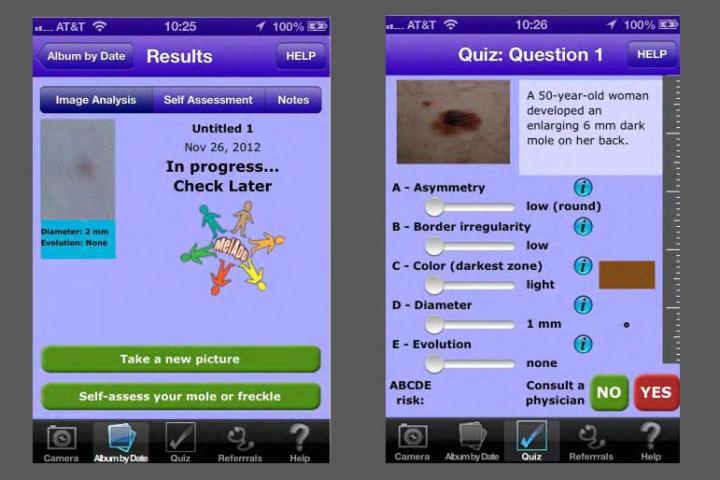
A number of these apps can certainly be useful for providing pointers on particular health issues, but others, according to the Federal Trade Commission (FTC), are putting users at great risk.
These include two – MelApp and Mole Detective – that claimed to be able to help detect melanoma, a potentially fatal form of skin cancer. So alarmed was the FTC by the developers’ claims that it decided to take action to remove the apps from sale.
The apps worked by getting a user to take a photo of a mole with their smartphone camera before inputting information on the spot’s various characteristics. The software would then calculate the melanoma risk, classifying it as low, medium, or high.
After evaluating MelApp and Mole Detective, the FTC said that despite the apps telling users to seek professional advice if they had a skin condition they were concerned about, the makers were being deceptive in claiming they could accurately assess malanoma risk, and accused them of lacking adequate evidence to support their claims.
MelApp was launched in 2011 for $1.99 by a U.S. company, while Mole Detective, the work of a UK-based outfit, landed a year later with a $4.99 price tag. Both apps have now been removed from sale.
As part of a settlement with the FTC, the company behind MelApp has agreed to pay $17,963, a figure linked to revenue generated by the app.
Mole Detective has been owned by three companies in its time, and while one has agreed to hand over $3,930, the other two have so far refused to settle, with the FTC currently pursuing both firms.
‘Truth in ad laws apply in the mobile marketplace’
Commenting on the case, Jessica Rich, director of the FTC’s Bureau of Consumer Protection, said that “truth in advertising laws apply in the mobile marketplace,” adding, “App developers and marketers must have scientific evidence to support any health or disease claims that they make for their apps.”
So the message is clear – if you’ve searched for an app like one of those above anytime recently, it probably means you should get to the doc for a proper examination as soon as you can.
[Source: FTC]


